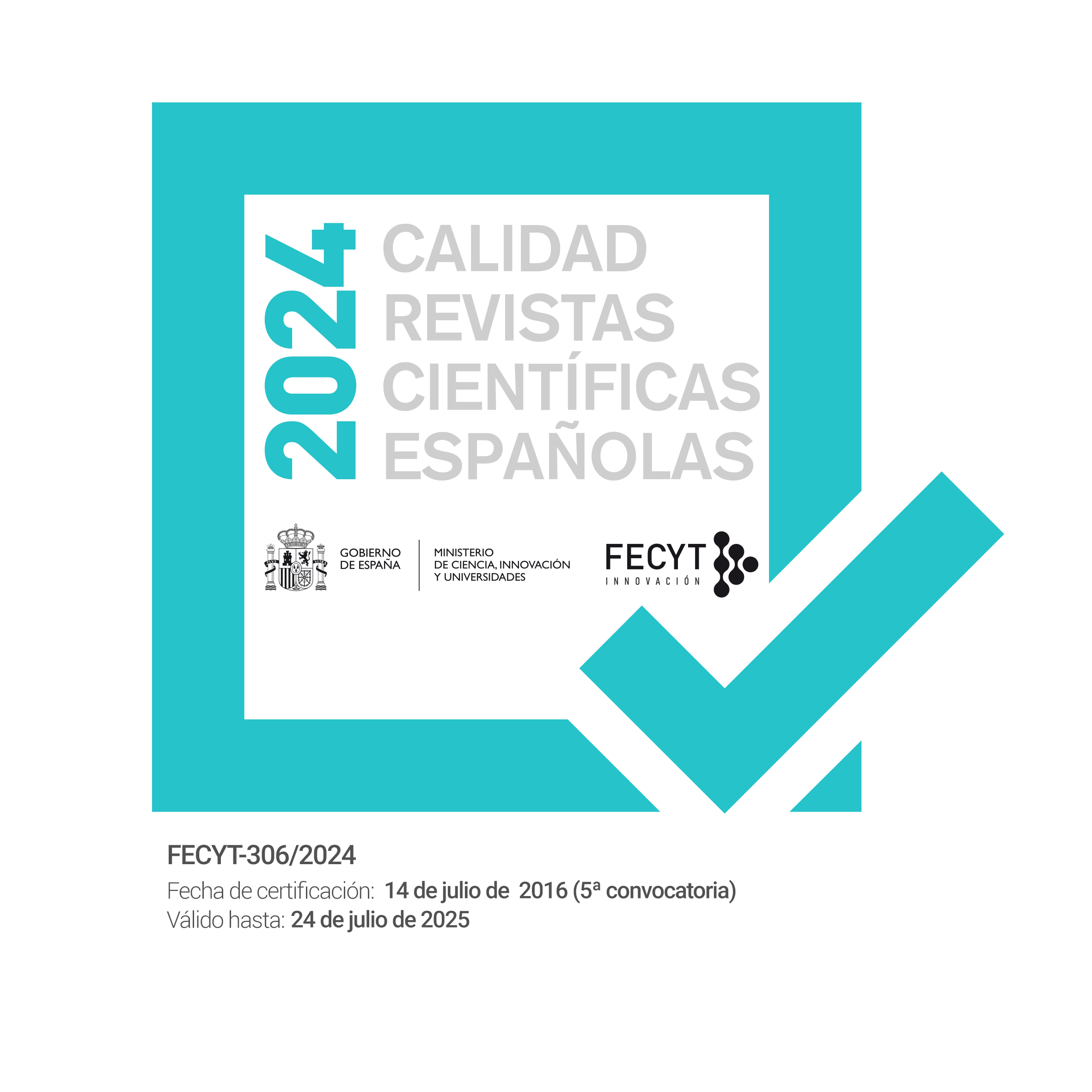Reflexiones sobre la accesibilidad de la población extranjera a los programas nacionales de rentas mínimas: una lectura comparada
DOI:
https://doi.org/10.22325/fes/res.2021.50Palabras clave:
Ingreso mínimo vital, programas de renta mínima, pobreza, migracionesResumen
El artículo propone un análisis sobre la accesibilidad de los extranjeros a los programas de renta mínima con la voluntad de estimular el debate sobre el impacto que la reciente introducción del Ingreso Mínimo Vital (IMV) puede tener en los ciudadanos de otras nacionalidades en España. Se realiza una comparación entre Alemania, Francia, Italia y España, con la finalidad de conocer las diferencias y similitudes en las condiciones de vida, el riesgo de pobreza, la exclusión social y el acceso efectivo a los regímenes de renta mínima entre las poblaciones nacionales y extranjeras. En la parte conclusiva se ilustran algunos factores clave para ampliar la inclusividad de los programas observando el caso español.
Citas
Autoridad Independiente de Responsabilidad Fiscal (2019). Los programas de rentas mínimas en España. Estudio. Madrid: AIReF.
Brenke, K. (2010). Five Years after the Reform of the Social and Unemployment Benefits in Germany. Weekly Report, Deutsches Institut für Wirtschaftsforschung, 6(12), 86-96.
Bundesagentur für Arbeit (2011). Basic Social Security for Job Seekers. Arbeitslosengeld II (Social Security). Recuperado de https://www.kreis-lup.de/export/sites/LUP/.galleries/PDF-LUP1/PDF-FD16/Ausfuellhinweise_Merkblaetter-ALG-II-mehrsprachig/Merkblatt-Sozialgesetz-ALG-II-englisch.pdf
Consejo Económico y Social de España (2019). Informe 02/2019. La inmigración en España: efectos y oportunidades. Madrid: Consejo Económico y Social.
Dag Tjaden, J. y Sánchez-Montijano, E. (2013). El acceso a la ciudadanía y sus efectos sobre la integración de inmigrantes: Manual para España. Bruselas: MPG.
Direction de la recherche, des études, de l'évaluation et des statistiques (2019). La protection sociale en France et en Europe en 2017. Résultats des comptes de la protection sociale. Recuperado de https://drees.solidarites-sante.gouv.fr/publications/panoramas-de-la-drees/la-protection-sociale-en-france-et-en-europe-en-2017-resultats
European Anti Poverty Network (2020). El estado de la pobreza. Seguimiento del indicador de pobreza y exclusión social en España 2008-2019. Madrid: EAPN.
European Commission (2020a). Germany - Unemployment benefits. Employment, Social Affairs & Inclusion. Recuperado de https://ec.europa.eu/social/main.jsp?catId=1111&langId=en&intPageId=4557
European Commission (2020b). France - Income Support (RSA). Employment, Social Affairs & Inclusion. Recuperado de https://ec.europa.eu/social/main.jsp?catId=1110&langId=en&intPageId=4541
European Commission (2020c). Employment, Social Affairs & Inclusion, Social Protection & Social Inclusion, Brussels.
European Minimum Income Network (2014). Analysis of Welfare Benefits Systems: The case of the “Revenu de solidarité active” in France. Recuperado de https://eminnetwork.files.wordpress.com/2013/04/emin-france-2014-en.pdf
EUROSTAT (2019). European Statitistical Recovery Dashboard; tables by themes, population and social conditions database. Luxemburg.
EUROSTAT (2020). Income and living conditions database. Luxemburg.
Finotelli, C. y La Barbera, M. C. (2013). When the exception becomes the rule: The Spanish citizenship regime. Migration Letters, 10, 245-253.
Heath, A. y Cheung, S. Y. (2007). Unequal Chances: Ethnic Minorities in Western Labour Markets. Oxford: Oxford University Press.
Istituto Nazionale Previdenza Sociale (2019). Osservatorio sul Reddito e Pensione di Cittadinanza. Appendice di statistica. Roma: INPS.
Jessoula, M., Natili, M. y Raitano, M. (2019). Italy: Implementing the new minimum income scheme. ESPN Flash Report. Recuperado de https://ec.europa.eu/social/BlobServlet?docId=21476&langId=en
Kesler, C. (2015). Welfare states and immigrant poverty: Germany, Sweden, and the United Kingdom in comparative perspective. Acta Sociológica, 58(1), 39-61. https://doi.org/10.1177/0001699314560238
Kogan, I. (2007). Working Through Barriers: Host Country Institutions and Immigrant Labour Market Performance in Europe. Dordrecht: Springer.
Ministerio de Sanidad, Consumo y Bienestar Social (2018). El Sistema Público de Servicios Sociales. Informe de rentas mínimas de inserción: año 2018. Madrid: Ministerio de Sanidad, Consumo y Bienestar Social
Organización de las Naciones Unidas (2019). International Migrant Stock 2019. Recuperado de https://www.un.org/en/development/desa/population/migration/data/estimates2/estimates19.asp
Organización para la Cooperación y el Desarrollo Económicos (2018). Working Together for Local Integration of Migrants and Refugees in Paris. París: OECD Publishing.
Organización para la Cooperación y el Desarrollo Económicos (2019). Working Together for Local Integration of Migrants and Refugees in Rome. París: OECD Publishing.
Reysz, J. (2016). The return to work policies in a time of crisis: A comparison between Germany and France. Recuperado de https://ideas.repec.org/p/hal/journl/halshs-01568258.html
Riphahn, R. T., Sander, M., Bamberg, U. y Wunder, C. (2010). The welfare use of immigrants and natives in Germany: The case of Turkish immigrants. International Journal of Manpower, 34(1), 70-82.
Sainsbury, D. (2012). Welfare States and Immigrant Rights: The Politics of Inclusion and Exclusion. Oxford: Oxford University Press.
Sgritta, G. (2020). Politiche e misure della povertà: il reddito di cittadinanza. Politiche Sociali/Social Policies, 1, 39-56.
Tarchi, D., Sermi, F., Belmonte, M., Mcmahon, S., Kalantaryan, S. y Gilodi, A. (2019). Atlas of Migration - 2019. Luxemburgo: Publications Office of the European Union.
Van Tubergen, F. (2006). Immigrant Integration: A Cross-national Study. Nueva York: LFB Scholarly Publishing.
Wallace, S. (2010). Naturalization policies in Europe: Exploring patterns of inclusion and exclusion. Florencia: EUDO Citizenship Observatory/Robert Schuman Center for Advanced Studies.
Publicado
Cómo citar
Número
Sección
Licencia
Derechos de autor 2021 Revista Española de Sociología

Esta obra está bajo una licencia internacional Creative Commons Atribución-NoComercial-CompartirIgual 4.0.
Todas las publicaciones de la Revista Española de Sociología se realizarán bajo una licencia abierta Creative Commons de Reconocimiento 4.0 Internacional (CC BY 4.0). Dicha licencia establece que los autores son los poseedores de los derechos de propiedad intelectual de sus trabajos, que pueden redistribuirse a cambio de un reconocimiento adecuado. Para más información de la licencia Creative Commons, consultar aquí.
Una vez aceptado un artículo para su publicación, la Revista Española de Sociología solicitará al denominado "autor para la correspondencia" la aceptación de una licencia obligatoria Creative Commons incluida en un acuerdo o contrato de publicación.



